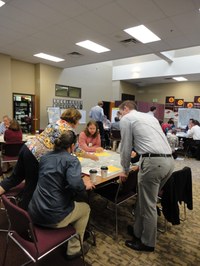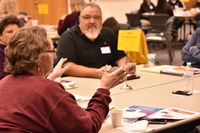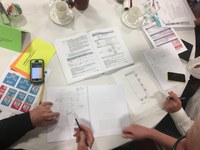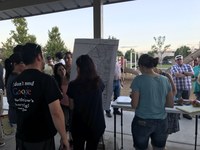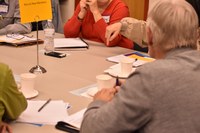Conflict Resolution and Collaboration Series
How to deal with conflict among neighbors, suggestions on responding, have your voice heard, and finding common ground.
The Office of Neighborhood Coordination (ONC) wants to support neighborhood leaders with quality information and training in the important ongoing mission of “Creating Community Together.” Leaders play a central role to develop associations that are inclusive of people with different views and have a respectful climate that encourages positive relationships within the neighborhood. Of course, the flip side of positive relationships can mean conflict.


